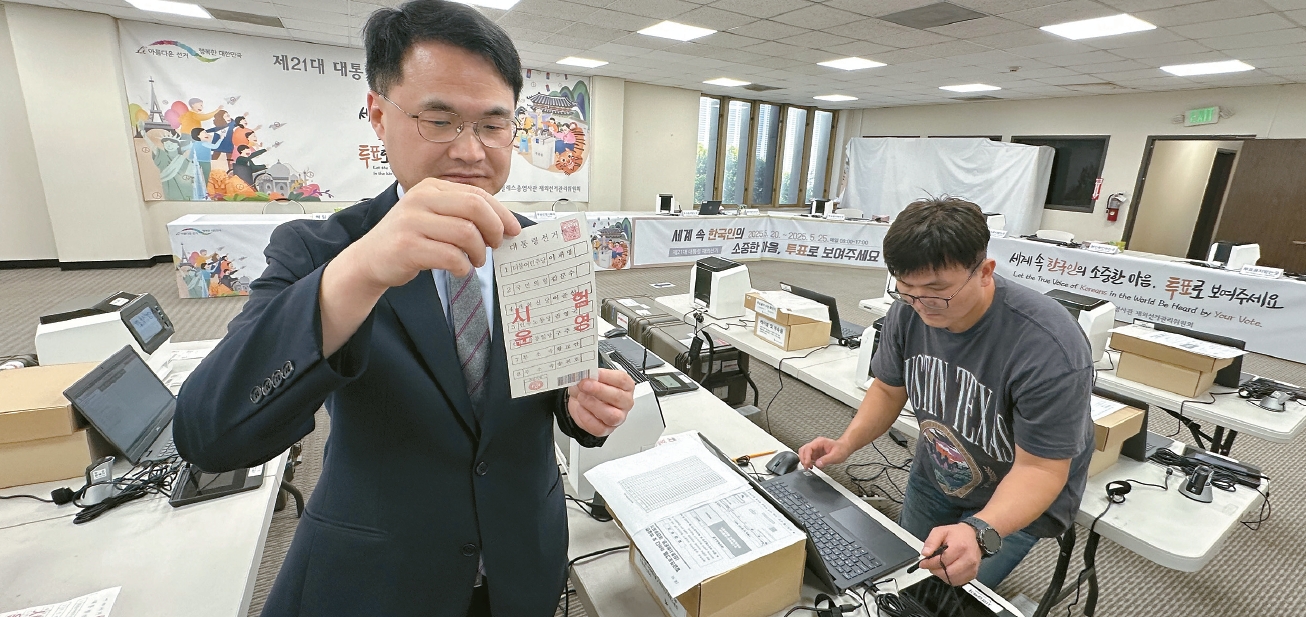The overseas voting period for South Korea’s 21st presidential election has begun, but many Korean Americans are once again struggling with limited polling site access, with some needing to drive over six hours to cast their vote. Voting is open from May 20 to 25 at up to four designated polling sites per consulate, requiring in-person visits.

In the jurisdiction of the Consulate General of Korea in Los Angeles, which covers Southern California, Nevada, Arizona, and New Mexico, distances can exceed 700 miles north to south and 1,000 miles east to west. Yet only four voting sites have been established. Voters living outside Southern California must travel to sites in Los Angeles or Arizona, often devoting one to two full days just to vote.
Community Calls for Reform Ignored by Officials
Korean Americans have long urged the National Election Commission (NEC) and South Korean lawmakers to revise the Public Official Election Act to allow mail-in or internet voting, or to expand the number of overseas polling sites. However, Korean political parties have failed to act, drawing criticism for focusing more on political advantage than voter access.
According to the NEC (Chair: Tae-Ak Noh), 75,607 overseas voters in the U.S. registered for this election, including 10,341 in Los Angeles. The total number of overseas voters across all countries reached 258,254, a 14% increase from the 2022 presidential election figure of 226,162.
Despite the increase, Korean Americans say poor accessibility and a lack of voting options continue to discourage participation.
On the internet forum MileMoa, a user named Crow commented, “I have to drive more than six hours to the LA voting site. Voting feels like going on a trip.” Another user, Burb, said, “I registered under the LA consulate’s jurisdiction, but without an additional polling place in my state, I’ll have to fly to LA just to vote.”
Minimal Impact from Previous Reforms
In January 2022, South Korea’s National Assembly amended the election law to allow each consulate to operate up to four overseas polling sites, up from three. However, the law allows only one additional site for every 30,000 overseas citizens, which critics say is too restrictive to make a real difference.
Community leaders continue to push for mail-in voting and internet voting as essential solutions, especially in countries like the U.S., where voters are often located far from consular offices. They also argue that the threshold for establishing new polling sites must be significantly lowered.
Woo-Kyung Lee, director of Uri Kyunghee Oriental Medicine Clinic, criticized the lack of engagement from both the NEC and Korean politicians: “They prohibit overseas election campaigns and do nothing to improve voting access, which is why registration is low. Not even a single ad about the election appeared in Korean American newspapers. The biggest problem is that politicians aren’t listening to overseas Koreans.”
Election Commission Offers No Concrete Solution
When contacted about the possibility of implementing mail-in voting, the NEC’s Public Affairs Department responded with a general statement: “It’s difficult to ensure fairness and stability. Introducing mail-in voting would require resolving issues like false registration and proxy voting.”
A bill to amend the Public Official Election Act and introduce mail-in voting for overseas Koreans has been submitted to the Korean National Assembly, but its passage remains uncertain due to ongoing political disinterest.
BY HYOUNGJAE KIM [kim.ian@koreadaily.com]
![From Pulpit to Motorcade: How a Mega-Church Pastor Turned LAX Into His Personal Red Carpet Men in suits are directing traffic on the roadway in front of the Tom Bradley International Terminal at Los Angeles International Airport. Rev. Younghoon Lee is stepping out of a stopped vehicle. [Instagram capture from @joy.of.everything]](https://www.koreadailyus.com/wp-content/uploads/2026/02/0206-pastor-2-100x70.jpg)


